May 24, 2025 | 10:52 GMT +7
May 24, 2025 | 10:52 GMT +7
Hotline: 0913.378.918
May 24, 2025 | 10:52 GMT +7
Hotline: 0913.378.918
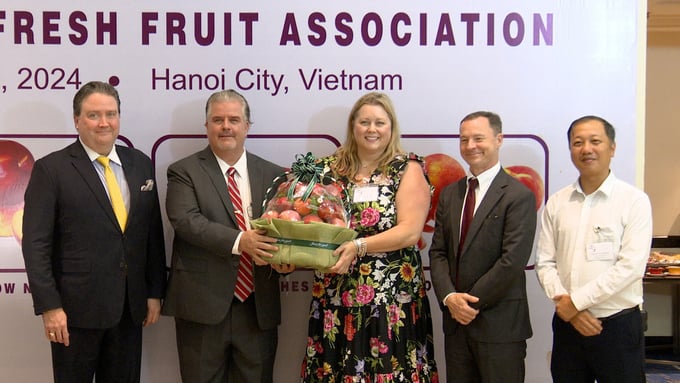
Representatives of the United States and the Ministry of Agriculture and Rural Development at the event to celebrate the import of American peaches and nectarines into Vietnam. Photo: Thanh Thuy.
The California Fresh Fruit Association commemorated a significant mark in trade relations between the United States and Vietnam on the afternoon of August 14. U.S. peaches and nectarines were imported into the Vietnamese market.
According to U.S. Ambassador to Vietnam Marc E. Knapper, this event underscores the significance of trade, fresh fruits, and the expanding partnership between U.S. agriculture and the Vietnamese market. Vietnam has allowed U.S. peaches and nectarines to enter its market following four years of negotiations and outstanding collaboration between the agricultural agencies of Vietnam and the United States.
“In September 2023, the two countries announced an upgrade of their bilateral relationship to a Comprehensive Strategic Partnership. This event helps elevate the relationship between the two countries to a new level and realizes the commitment made by the leaders of both countries to open the trade market further,” Ambassador Knapper shared, expressing gratitude to the Ministry of Agriculture and Rural Development (MARD) and the Plant Protection Department for facilitating the entry of U.S. products into the Vietnamese market.
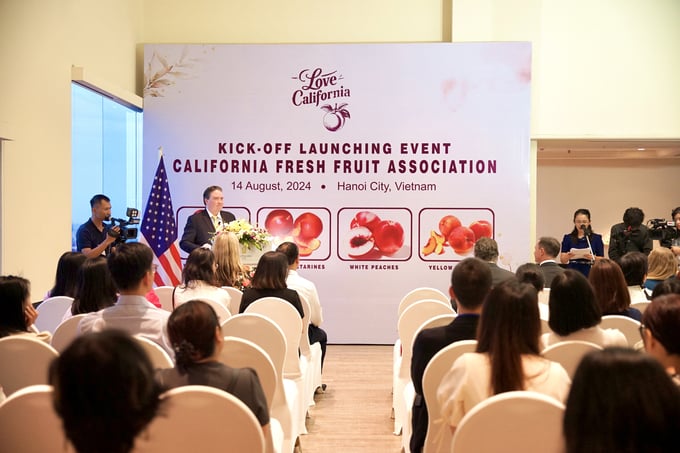
US Ambassador to Vietnam Marc E. Knapper speaks at the event. Photo: Linh Linh.
Ms. Caroline Stringer, Director of Trade at the California Fresh Fruit Association, evaluated the competitiveness and potential of U.S. peaches and nectarines in the Vietnamese market. She noted that the stone fruit industry in California had previously acknowledged this significant potential.
In May 2023, regulatory agencies, particularly representatives from the Plant Protection Department, organized a technical visit to California to introduce these fruits to Vietnamese consumers. They conducted a thorough inspection of the refrigerated storage facilities, treatment centers, nectarine and peach orchards, and packing facilities.
Over the years, the two nations have engaged in numerous technical negotiations to eliminate phytosanitary barriers. She stated that Vietnam is the 41st and most recent foreign market for California nectarines and peaches. She is confident that Vietnamese consumers will appreciate the succulent, flavorful qualities of these stone fruits.
Mr. Marc Gilkey, the South Asia Regional Director of the U.S. Animal and Plant Health Inspection Service (APHIS), stated that USDA-APHIS prioritizes adherence to sanitation and plant inspection regulations. This is a significant indicator of the secure export of fresh produce to countries such as Vietnam.
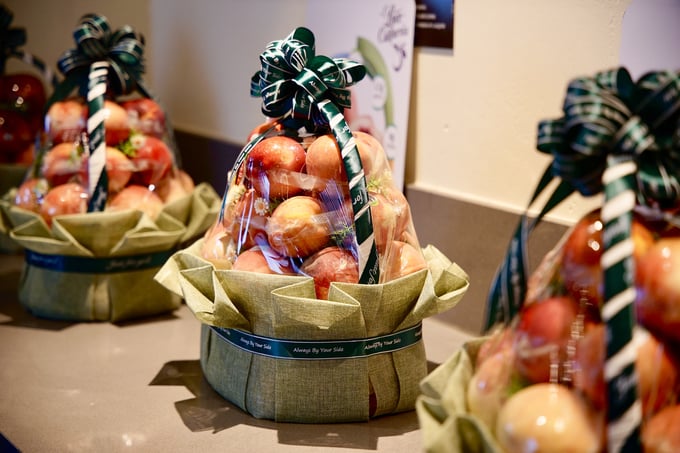
The two countries have gone through many rounds of technical negotiations over the years to move towards removing plant quarantine barriers. Photo: Linh Linh.
"Once these regulations are satisfied, we will be able to explore new markets for nectarines and peaches, including the Vietnamese market. We have the potential to open the U.S. market for Vietnamese passion fruit soon. This momentum is in the opposite direction", the APHIS representative stated.
He also expressed his desire for the two countries to continue collaborating to foster agricultural trade relations, thereby enabling the entry of a variety of new agricultural products into each other's markets, removing technical inspections and safety regulations.
“The expansion of this market is a big win for both nations. Vietnamese consumers will have the opportunity to enjoy high-quality and sweet peaches and nectarines from California, and U.S. producers will gain additional markets for their products,” said Jenny Lester Moffitt, Under Secretary for Marketing and Regulatory Programs at the U.S. Department of Agriculture.
The United States and Vietnam have been significant trading partners, which is yet another indication of the United States' commitment to fostering sustainable and secure trade. The U.S. Under Secretary of Agriculture expressed gratitude to the USDA's Animal and Plant Health Inspection Service and the collaborators at Vietnam's Ministry of Agriculture and Rural Development (MARD) for their contributions to the successful entry of U.S. nectarines and peaches into the Vietnamese market.
The relevant authorities have approved the importation of U.S. peaches and nectarines into the Vietnamese market, as previously announced by the U.S. diplomatic mission in Vietnam, the U.S. Department of Agriculture, and the California Fresh Fruit Association.
The two nations pledged to facilitate and promote additional market access for each other's goods and services, as well as to support trade and economic policies and regulatory measures, in the Joint Statement by the leaders of the two countries on upgrading U.S.-Vietnam relations in September 2023.
The United States accepted Vietnamese coconuts to enter its market last year. Peaches and nectarines from the United States are available in Hanoi and Ho Chi Minh City in the upcoming weeks.
Translated by Dieu Linh
/2025/05/22/5250-1-184853_288.jpg)
(VAN) According to a representative from the Central Retail Vietnam, Vietnamese products such as seafood, sweet potatoes, dragon fruit, coffee, and spices hold great potential in the Thai market.
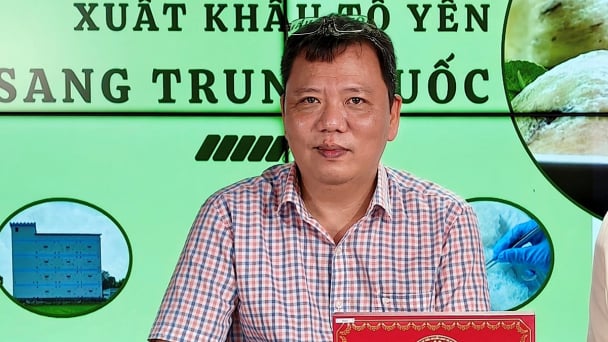
(VAN) A multi-channel, multi-directional strategy only works when the agricultural value chain meets global transparency and SPS standards.
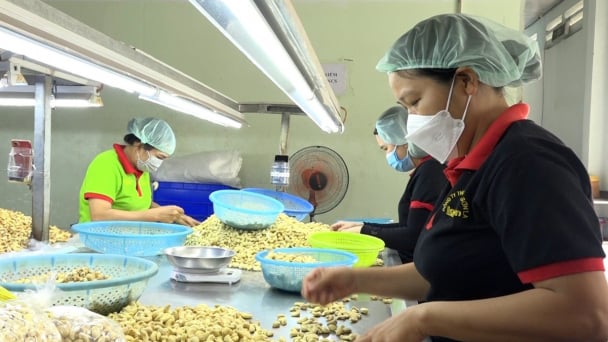
(VAN) Market expansion is a matter of survival for Vietnamese businesses amid fierce competition and global supply chain fluctuations.
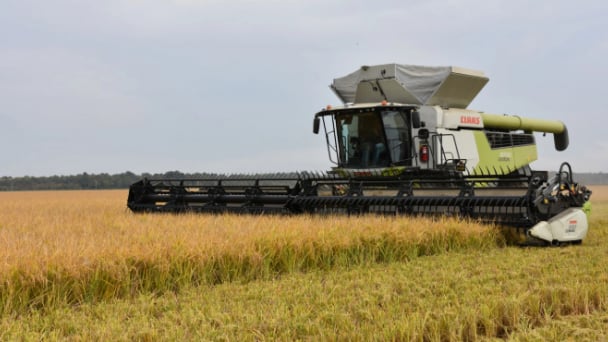
(VAN) Global market prospects for U.S. long-grain rice for the upcoming marketing year.
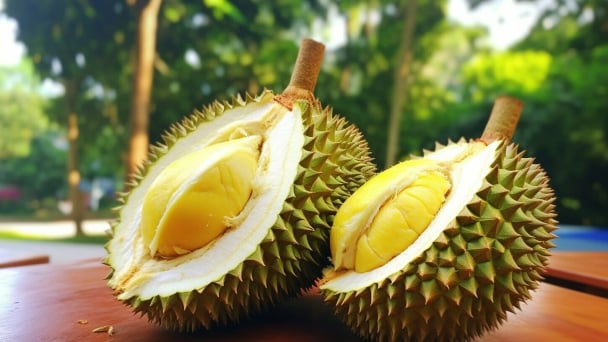
(VAN) China’s General Administration of Customs started permitting fresh durian shipments from Cambodia after a phytosanitary protocol was signed with the Cambodian Ministry of Agriculture in late April.
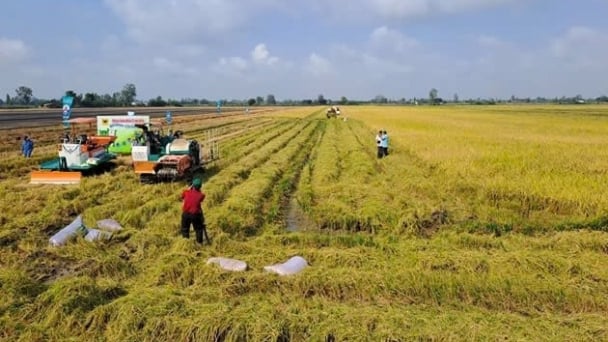
(VAN) To operate carbon market, one of the key issues is determining which types of 'commodities' meet the standards to be traded on the market.
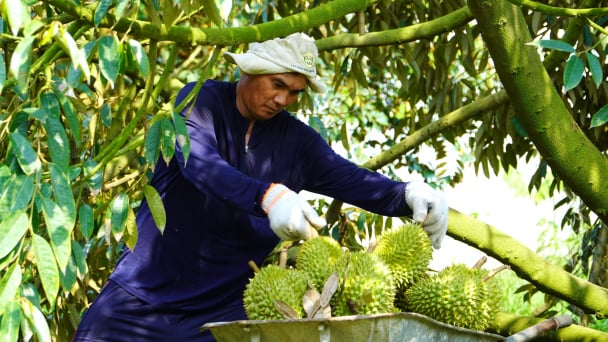
(VAN) Durian-producing localities need to coordinate more effectively with central authorities to improve the traceability, monitoring, and response systems in case of violations.